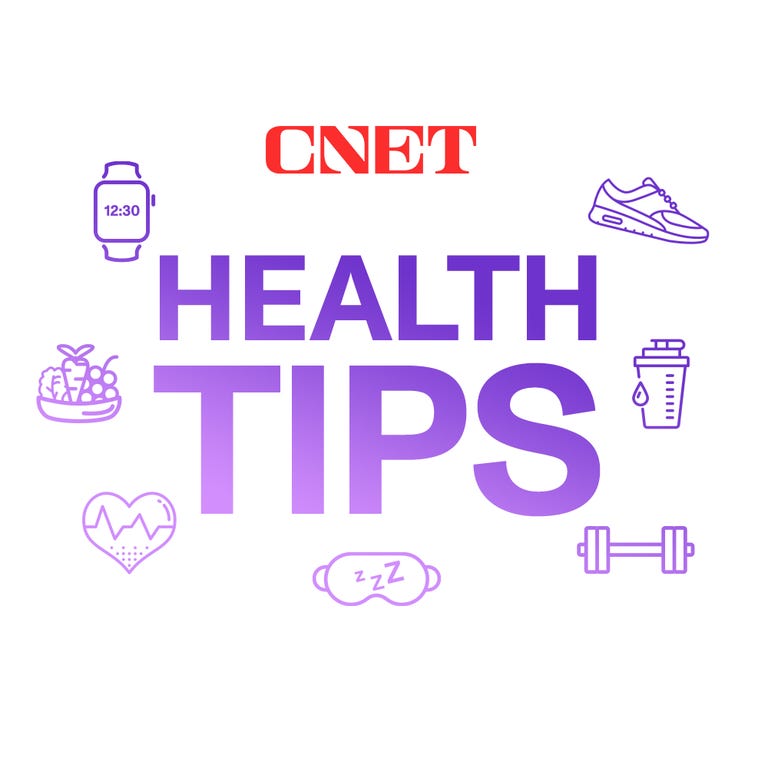We’ve all been there — it’s 2 a.m., you’re clammy and flustered, legs twisted between the sheets. You have only a few hours before it’s time to get up and get ready for the day, but now you’re wide awake, your brain refusing to quiet down and let you fall back asleep.
Having an unrestful night of lousy sleep is common every once in a while. But consistently missing out on those 7 or so crucial hours of shut-eye raises your risk for various mental and physical conditions or symptoms, including hypertension (high blood pressure) and others that affect your heart health.
This may seem like common knowledge, but it’s not necessarily old news. It wasn’t until the summer of 2022 that the American Heart Association added sleep duration to its list of Life’s Essential 8 things people should do to improve their cardiovascular health — the umbrella term for how your heart and blood vessels function.
The good thing about sleep is that there are plenty of ways to improve it. While persistently poor sleep hygiene does leave you more vulnerable to disease, the impacts of getting inadequate sleep are typically cumulative, and you can establish new habits for improving sleep that work for you.
Here’s exactly how poor sleep affects your heart health and what you can do about it.
Lack of sleep raises your blood pressure (and stress level)

Over time, not getting enough sleep may raise your blood pressure. One reason for this, as explained by the Mayo Clinic’s Dr. Francisco Lopez-Jimenez, is that sleep helps the body control hormones needed to manage stress and metabolism.
Sleep deprivation may elevate levels of cortisol, the body’s stress hormone. Too much of this over time may raise blood pressure, which can lead to heart disease, the No. 1 cause of death in the US.
This might be a chicken-or-egg scenario for the insomniacs out there, as well as people whose hearts start pounding when they realize their alarm will be going off in only a few hours. You may be stressed about sleep because you aren’t getting enough of it, which makes the acute stress snowball into a long-term stress situation.
If you’re looking for ways to get more quality shut-eye, check out our list of top sleep tips by CNET’s sleep experts.
Over time, you might have a higher risk of having a heart attack or stroke
Because poor sleep can contribute to high blood pressure, which harms cardiovascular health, it makes sense that poor sleep has also been linked to a higher risk of cardio-cerebral vascular events, including things like stroke or heart attack.
A 2023 study found a link between insomnia and getting five or less hours of sleep and an increased risk of myocardial infarction (heart attack).
Additionally, certain medical conditions centered around sleep, like sleep apnea and insomnia, can hurt your heart health over time, according to the US Centers for Disease Control and Prevention.
Fatigue may lead to other harmful (but not irreversible) habits

Getting a poor night’s sleep before the next day’s workout can impact your exercise by making it feel harder, possibly more painful and just less fun overall. Feeling too tired to work out means you’ll do it less often, and you shouldn’t force it if your body needs rest. But over time, a lack of physical activity caused by poor sleep (or anything else) can increase your risk of cardiovascular disease.
In fact, regular physical activity is one of the most important things you can do for yourself and for your heart health, and it doesn’t need to be a full-blown workout each time. Physical activity may reduce your blood pressure, as well as help you manage cholesterol, blood sugar and other factors that can improve your heart health.
Because sleep deprivation also affects our body’s hormones, your appetite may also be affected.
As Rebecca Stetzer, a registered dietician, explained in a post for Gundersen Health System, hormones that regulate hunger will be disrupted following poor sleep and may have you craving foods that are high in added sugar, fat or sodium more often than normal. This means you might be feeling so exhausted that you’re looking for the quickest — and often sugary — snack that will give you that jolt of energy you need.
Like lack of movement, diets that are too high in sugar or sodium in relation to the other nutrients our bodies need can increase the risk of cardiovascular disease.
On the whole, getting enough sleep is one piece of your heart health, but it’s a big one. Along with your levels of physical activity, how many nutrients you eat, lifestyle factors like smoking and whether you’re able to check in every once in a while for a doctor’s visit, sleep figures into how healthy your heart is.
Daily routines like diet and exercise are never permanent — you can tweak them however you choose at any time — and fortunately, there are simple habits you can begin incorporating into your daily life to help lower your risk of heart disease. Here are some more tips for fixing your sleep and what to know about screening for heart disease.
